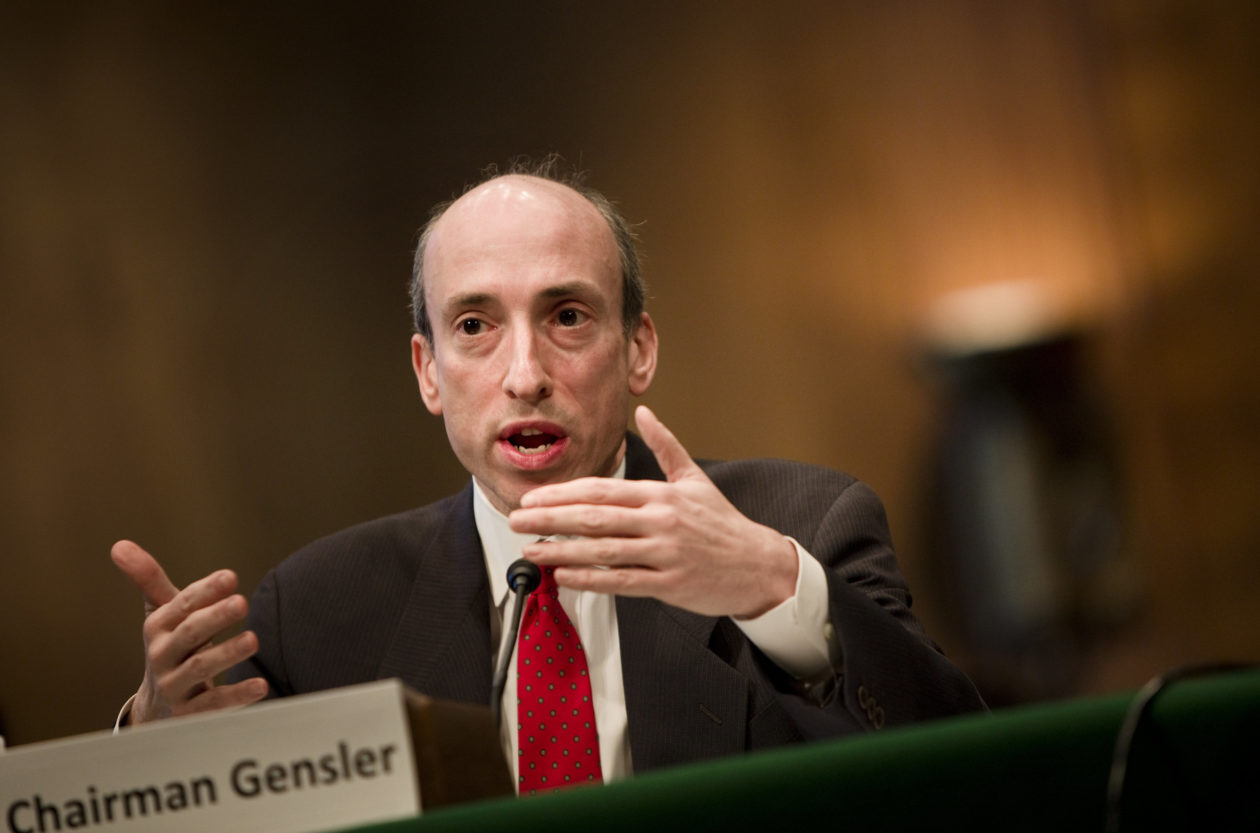Ahead of the U.S. Banking Committee’s hearing on the “Oversight of the U.S. Securities and Exchange Commission” today, SEC Chairman Gary Gensler reiterated his call for crypto platforms and projects that have securities to register with the agency.
Fast facts
- In prepared remarks, Gensler emphasized the concerns he sees over the lack of investor protection in the crypto industry. “Currently, we just don’t have enough investor protection in crypto finance, issuance, trading, or lending. Frankly, at this time, it’s more like the Wild West or the old world of ‘buyer beware’ that existed before the securities laws were enacted,” Gensler wrote. “This asset class is rife with fraud, scams, and abuse in certain applications.”
- “I’ve suggested that platforms and projects come in and talk to us. Many platforms have dozens or hundreds of tokens on them. While each token’s legal status depends on its own facts and circumstances, the probability is quite remote that, with 50, 100, or 1,000 tokens, any given platform has zero securities,” Gensler wrote. “Make no mistake: To the extent that there are securities on these trading platforms, under our laws they have to register with the Commission unless they qualify for an exemption.”
- The SEC is working with the Commodity Futures Trading Commission (CFTC) on stepping up investor protection in crypto, Gensler said, as well as with other agencies — the Federal Reserve, Department of Treasury, Office of the Comptroller of the Currency, and other members of the President’s Working Group on Financial Markets — to develop policy frameworks for crypto.
- Caitlin Long, founder and CEO at Avanti Financial Group, said in a tweet: “Tone is negative — more so than his previous remarks. Something else interesting — instead of #stablecoins he’s calling them ‘stable value coins.’ Stable value funds are SEC-regulated …”
- Gensler has hinted at regulation around stablecoins in the past. More recently, Gensler, speaking before the European Parliament Committee on Economic and Monetary Affairs on Sept. 1, said: “In July, nearly three-quarters of trading on all crypto trading platforms occurred between a stablecoin and some other token. Thus, the use of stablecoins on these platforms may facilitate those seeking to sidestep a host of public policy goals connected to our traditional banking and financial system: anti-money laundering, sanctions, and more.”
- The crypto industry in the U.S. has been under growing regulatory scrutiny. Gensler’s comments follow the SEC’s recent warning to Nasdaq-listed Coinbase, the largest cryptocurrency exchange in the U.S. by trading volume, over its high-yield crypto savings Lend product, which the agency says involves a security, according to Coinbase. The SEC is reportedly also investigating Uniswap Labs, the developer behind the decentralized exchange Uniswap.
- Investors and the crypto industry alike have also been closely watching the SEC v. Ripple Labs lawsuit, currently in its discovery phase. The SEC has alleged that Ripple’s sale of its XRP token was an unregistered securities offering. At the heart of the SEC’s lawsuit is whether transactions involving XRP constitute “investment contracts” and therefore securities subject to registration under Section 5 of the Securities Act of 1933. The agency last week pushed back on Ripple’s legal questions regarding the application of the Howey test to determine the status of XRP. The Howey test, based on SEC v. W. J. Howey Co., 328 U.S. 293 (1946), is used to determine whether the law would deem a financial product a security. Under the Howey test, an investment contract “exists when there is the investment of money in a common enterprise with a reasonable expectation of profits to be derived from the efforts of others.”





